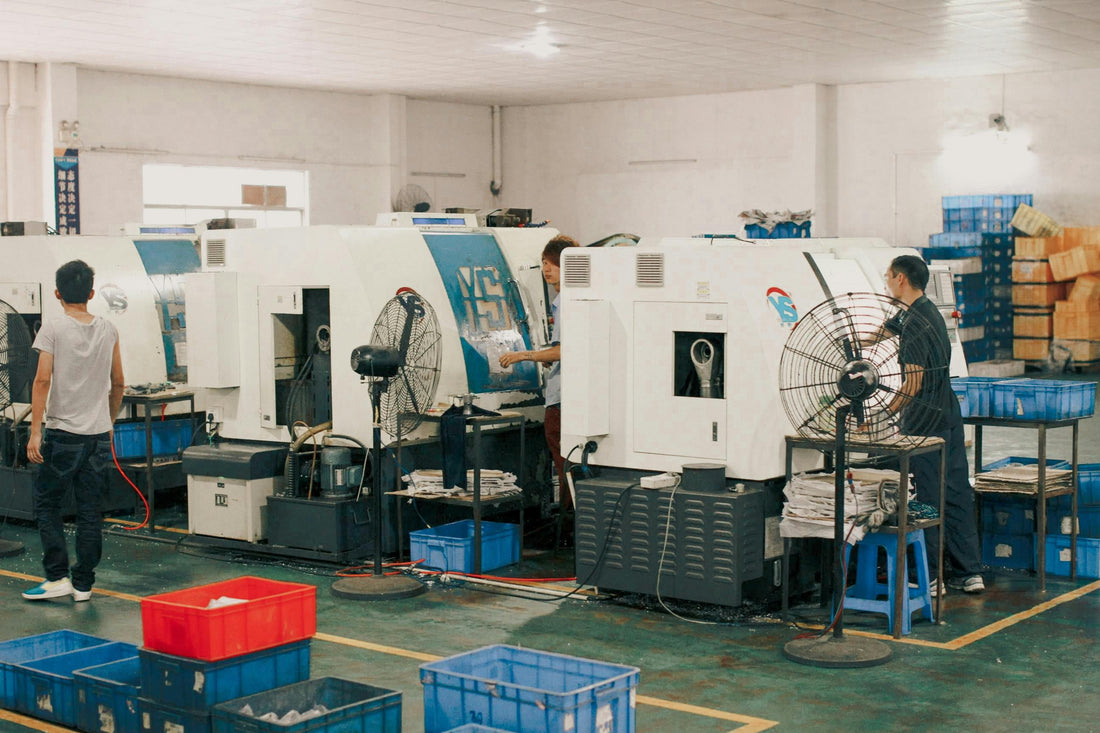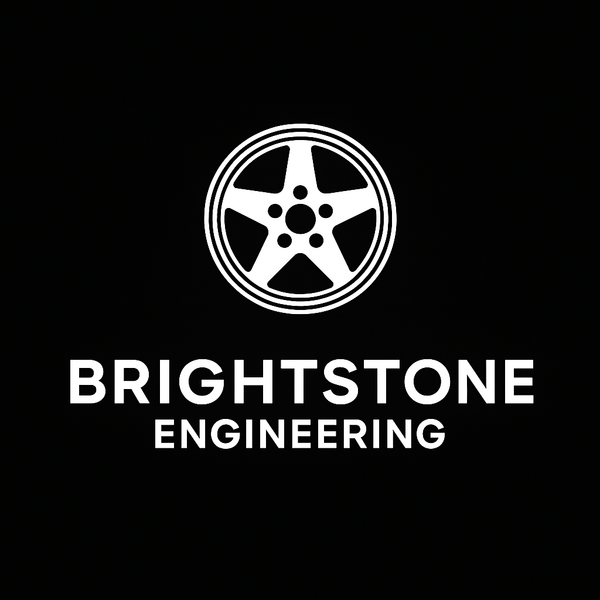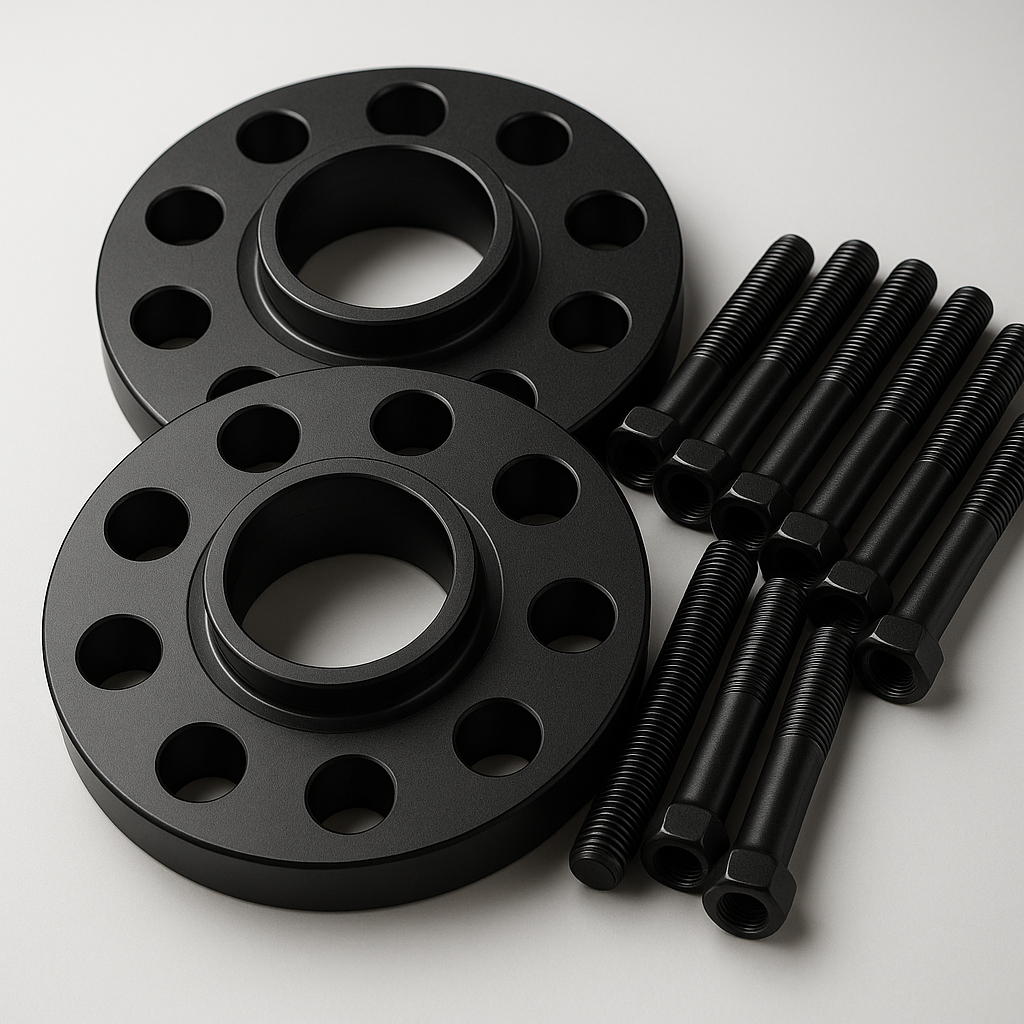
What is a Machine Shop?
Share
Introduction to Machine Shops

What's a machine shop?
It's where people take pieces of metal and turn them into the parts that actually make things work. Your car's custom bracket? Made in a machine shop. That motorcycle part you can't buy anywhere? Same thing.
At Brightstone Engineering, we're part of the new generation of machine shops - combining traditional metalworking skills with modern technology to solve problems that used to be much harder to tackle.
The old days meant everything was done on manual machines, and if you messed up, you'd waste hours of work and expensive material. Things are different now. We use CNC technology for precision work while keeping our manual equipment for jobs where hands-on control makes more sense.
This combination gets you better results than either approach alone. Our 3D scanning capability means we can reverse-engineer parts even when you don't have drawings, and our CNC equipment cuts those parts with repeatability that manual methods can't match.
Machine shop costs have become more reasonable because of these advances - the equipment might cost more upfront, but parts get made faster and with fewer mistakes. Whether you need welding services, custom fabrication, or rapid prototyping, modern shops can handle jobs that would've been nearly impossible twenty years ago.
Exploring Machine Shop Services
Machine shop services break down into several main areas, and each one requires different skills and equipment. Machining is the bread and butter - this is where raw metal gets cut, drilled, and shaped into finished parts.
Then you have welding services, which join parts together or repair broken components. We offer both TIG and MIG welding - TIG for precision work on aluminum and stainless steel, MIG for heavier steel fabrication. Good welding can fix things that most people would throw away, saving both money and time.
CNC technology has changed how production works in modern shops.
Custom fabrication is where shops really show their skills. Someone brings in a broken part or a rough sketch, and the machinist figures out how to make it work. Our 3D scanning capability is perfect for this - we can capture the geometry of existing parts, even damaged ones, then improve on the original design.
Surface finishing adds another dimension to machine shop services. Beyond basic machining, we offer anodizing for aluminum parts and cerakoting for components that need enhanced protection or specific colors. Both processes can handle parts up to 400mm square, covering most applications our customers bring us.
Modern Machine Shop Technology

Technology has changed everything about how we work with metal. I still use manual machines for plenty of jobs, but when you need something cut to precise tolerances or with complex shapes, CNC equipment wins every time.
What really makes the difference though is speed. Last week a customer brought me a broken pump housing from a machine that's been out of production for fifteen years. Twenty years ago, that would have meant weeks of hand-measuring and probably multiple attempts to get it right. Now I scan it with our 3D scanner, clean up the file on the computer, and have a replacement part machined by the next day.
The scanning is what changed the game for us. We can capture parts that are worn, corroded, or partially broken - situations where traditional measuring tools would be useless. Then improve on the original design if needed.
This is huge for customers dealing with obsolete components or damaged parts from discontinued products. We scan the original, clean up the geometry in CAD software, then machine improved versions that often outlast what came from the factory.
Digital workflows mean faster turnaround times too. Once a part is designed, the program goes straight to the machine with minimal setup time. We can often deliver prototypes in days rather than weeks, and production parts faster than traditional ordering channels.
Surface treatments have become more accessible as well. Our anodizing capability creates hard, corrosion-resistant surfaces on aluminum parts while adding color options for identification or aesthetics. Cerakoting provides similar protection for steel components with even more color choices and superior durability.
The combination of precision machining with advanced finishing means parts that not only fit perfectly but look professional and last longer than standard alternatives.
Machine Shops in Education

Schools with machine shops are doing something important for the future of manufacturing. These aren't typical classrooms - they're workshops full of lathes, mills, and CNC equipment that students actually get to use.
The smart educational programs set up their workshops to mirror real commercial operations. Students learn on similar equipment to what they'll encounter in industry, but with the freedom to experiment and learn from mistakes without the pressure of deadlines or customer expectations.
Machine shop training works best when students get hands-on experience from day one. You can't learn machining from textbooks alone. Students typically start with simple projects on manual equipment, learning fundamentals of measurement, material properties, and basic operations.
Then they progress to more complex work, often including computer-controlled equipment and modern techniques like 3D scanning and digital design. Some educational programs partner with local businesses to take on real projects - students gain experience on actual parts while companies get help with prototyping and small-batch work.
The best programs balance practical skills with understanding why things work the way they do. Technology changes rapidly in manufacturing, so schools need to teach both timeless fundamentals and current methods. A student who understands both manual techniques and modern digital workflows is prepared for whatever direction the industry takes.
Visiting a Machine Shop

Planning to visit a machine shop? Here's what to expect and how to make the most of your trip.
First, it's going to be loud. The moment you walk in, you'll hear machines cutting metal, air compressors cycling, and the general bustle of active manufacturing. They'll hand you safety glasses immediately - wear them without question. And don't touch anything unless someone says it's okay. That equipment looks straightforward but demands respect.
Bring your part with you if you have one. Or drawings. Or at least a clear idea of what you're trying to make. The worst shop visits happen when someone shows up saying "I need a thing that does stuff." Machinists need details: What material? How many do you need? What's it supposed to fit? What loads will it carry?
A good machinist will ask plenty of questions and probably suggest ways to make your part easier to manufacture. That's why face-to-face meetings work better than phone calls or emails. They can examine your broken part and tell you immediately if it's worth repairing or if you should make a new one.
At our shop, we often use our 3D scanner during these consultations. We can capture the geometry of your existing part right there, showing you exactly what we're working with and discussing potential improvements. This visual approach helps everyone understand the project better.
Come prepared to discuss timeline and budget too. Rush jobs cost more, and complex parts take longer than simple ones. A reputable shop will give you realistic expectations rather than just telling you what you want to hear.
Choosing the Right Machine Shop

Picking the right machine shop makes all the difference in your project's success. Start by looking at equipment capabilities - does the shop have the specific machines needed for your part? More importantly, do they understand your application?
Experience with similar projects matters more than just having the right equipment. Check their past work and ask if they've made comparable components before. At Brightstone Engineering, we keep detailed records and photos of completed projects so potential customers can see relevant examples.
Price matters but shouldn't be your only factor. A shop that charges slightly more might save you money by getting the job done right the first time. Factor in the total cost - initial price plus any rework, delays, or shipping expenses.
Location plays a bigger role than many people think. A local shop lets you discuss changes face-to-face, avoid shipping delays, and build a working relationship for future projects. Being able to drop in and check progress or discuss modifications in person is valuable.
Before you commit, ask direct questions about timelines, material sourcing, and quality control methods. Good shops will explain their process clearly and point out potential issues with your design. They should be willing to suggest alternatives that might work better or cost less.
Ask to see examples of their work similar to your project. Customer feedback helps too, but pay attention to how shops respond to any concerns - it shows how they handle problems when they arise.
Communication quality during your initial inquiry often reflects how the entire project will go. If they're responsive, thorough, and professional from the start, that's usually a good sign.
Quality Control in Machine Shops

Quality control separates professional shops from hobbyist operations. Every part that leaves a reputable shop should meet specified tolerances and perform as intended. This starts with proper measurement tools and continues through documented processes.
At our shop, we check dimensions throughout the machining process, not just at the end. This catches potential issues early and prevents scrapped parts. We use precision measuring instruments to verify that parts meet drawing specifications and function requirements.
For complex assemblies or critical components, additional verification steps make sense. This might include test fitting with mating parts or functional testing where appropriate. Documentation matters too - keeping records of measurements and processes helps with troubleshooting if issues arise later.
Surface finishing quality control is equally important. Whether parts get basic machined finishes or specialized treatments like anodizing or cerakoting, the preparation and process control determine the final result. We prepare surfaces properly in our blasting cabinet before any coating process.
Material traceability becomes important for certain applications. Knowing exactly what alloy was used and its properties can be critical for safety-related components or applications with specific performance requirements.
Good quality control isn't about perfection - it's about consistently meeting the requirements that matter for each specific application. A bracket for a garden gate needs different attention than a brake component for a racing car.
The Future of Machine Shops

Machine shops won't look the same in ten years, but the changes will probably be more subtle than people expect. You're already seeing smaller shops accessing equipment that used to be reserved for large manufacturers.
Advanced CNC machines, 3D scanning technology, and specialized software are becoming more affordable and easier to use. This democratization of technology means small shops can compete on quality and capability rather than just price.
The real transformation is in workflow efficiency. Parts get designed digitally, programs transfer directly to machines, and quality verification happens throughout the process. Some shops are integrating automated material handling and tool changing, though skilled operators remain essential for setup, troubleshooting, and quality oversight.
Sustainability is gaining attention too. Metal recycling has always made economic sense, but now shops are looking at everything from energy-efficient lighting to reduced coolant waste. Solar installations and other green initiatives are becoming common where they make financial sense.
There's also movement toward reshoring - bringing manufacturing back to local communities. This creates jobs and shortens supply chains, but it requires skilled workers who understand both traditional techniques and modern technology.
The challenge is workforce development. Many experienced machinists are approaching retirement, and technical education hasn't kept pace with demand. Forward-thinking shops are developing their own training programs and partnering with schools to build the next generation of skilled workers.
The shops that succeed will be those that balance technological capability with skilled craftspeople, efficient operations with personal service, and modern methods with proven fundamentals. Technology amplifies human skill rather than replacing it.
Getting Started with Machine Shop Services

If you're new to working with machine shops, start with a clear understanding of what you need. Gather any existing parts, drawings, or specifications you have. Even rough sketches help communicate your requirements.
Think about quantities too. Making one prototype part is different from producing a hundred components. The machining approach and pricing structure change significantly with volume. Be honest about your timeline - rush jobs cost more but are often possible when truly needed.
Material selection affects both cost and performance. If you're not sure what material to use, a good machinist can recommend options based on your application. They understand how different metals machine and perform in service.
At Brightstone Engineering, we particularly enjoy working with customers who are solving interesting problems. Whether it's reverse-engineering obsolete parts, creating custom assemblies, or developing prototypes, we approach each project as a partnership between your requirements and our manufacturing capabilities.






